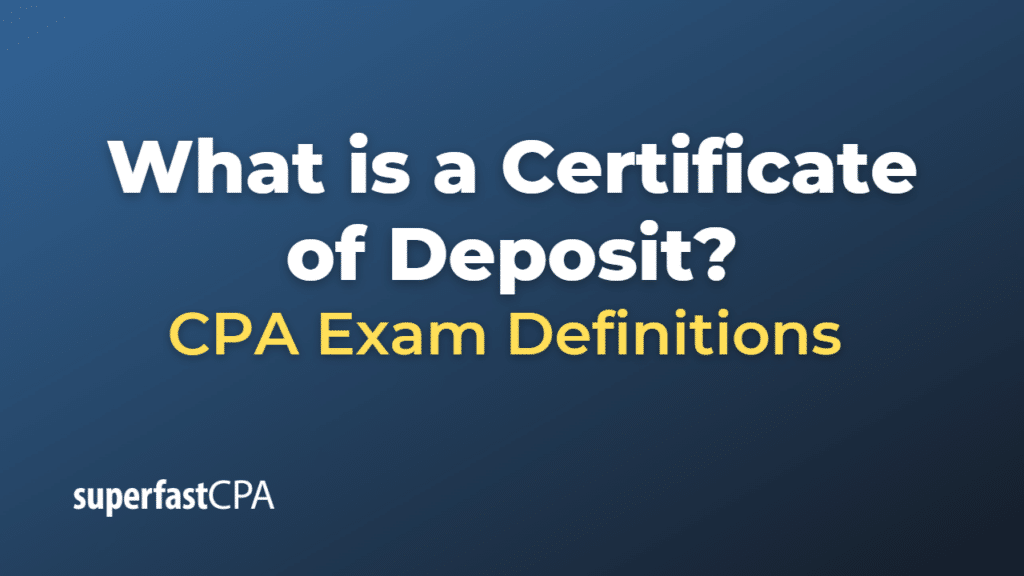Certificate of Deposit
A Certificate of Deposit (CD) is a financial product offered by banks and credit unions that allows individuals to deposit a fixed sum of money for a specified period, typically ranging from a few months to several years. In return for depositing the money, the financial institution pays the depositor interest on the principal amount. The interest rate for a CD is generally higher than the rate paid on traditional savings accounts because the depositor agrees to keep the funds in the CD for the entire term.
CDs are considered a safe and low-risk investment option since they are insured by the Federal Deposit Insurance Corporation (FDIC) in the United States or similar deposit insurance entities in other countries, up to applicable limits. The trade-off for this safety is lower returns compared to other investments such as stocks and bonds.
When the CD matures at the end of its term, the depositor receives the principal amount along with the interest earned. Withdrawing funds from a CD before its maturity date typically results in penalties, such as a loss of interest earned or a portion of the principal amount.
Example of a Certificate of Deposit
Let’s say John decides to invest in a 2-year Certificate of Deposit (CD) with a principal amount of $10,000 and an annual interest rate of 2%. The financial institution guarantees this interest rate for the entire term of the CD.
At the end of the first year, John’s CD will have earned interest of $200 ($10,000 x 0.02). The total value of the CD after the first year would be $10,200 ($10,000 + $200).
At the end of the second year, the CD will have earned another $204 in interest ($10,200 x 0.02), making the total value of the CD $10,404 ($10,200 + $204).
When the 2-year term is over, John will receive his initial principal of $10,000 along with the total interest earned of $404, giving him a total of $10,404. If John were to withdraw the funds before the maturity date, he might face penalties, such as losing a portion of the interest earned or even a portion of the principal amount.













